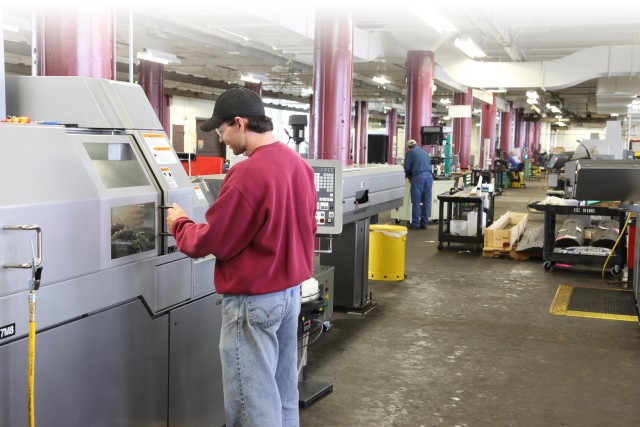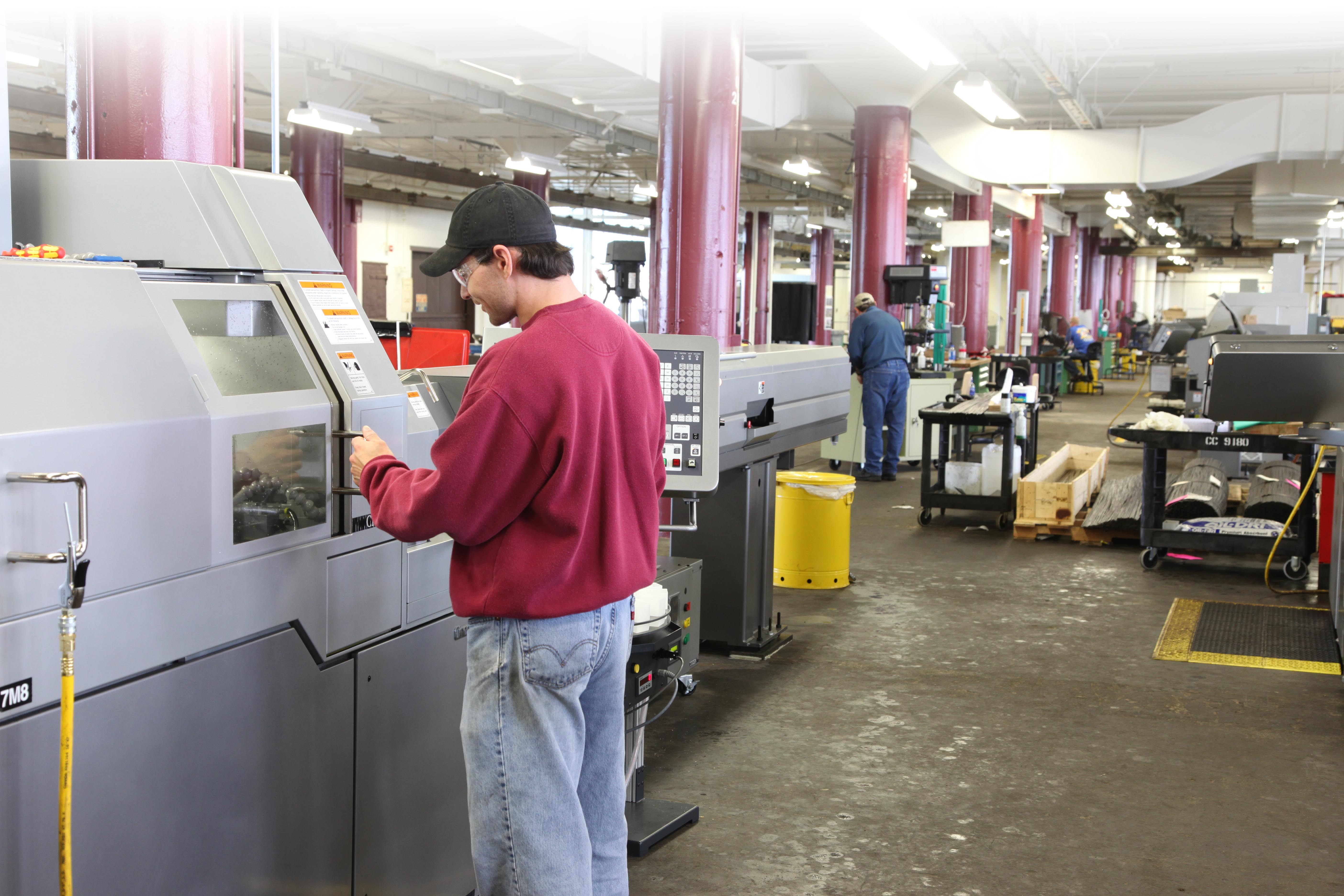For 140 years, Rock Island Arsenal has strived to demonstrate a readiness similar to that of a United States Soldier. The Rock Island Arsenal Joint Manufacturing and Technology Center's Small Arms Parts Focus Factory has recently proven this dedication to preparedness and to the Soldier, once again.
When Quality Deficiency Reports were received from TACOM Life Cycle Management Command customers reporting that firing pins for the M252 81MM mortar and M120/M121 120MM mortar, bought commercially, were not meeting minimum protrusion requirements, the entire spares inventory was suspended from issue. The distance a pin protrudes into the mortar tube can determine whether or not the ammunition primer will function as intended, making protrusion requirements critical. TACOM LCMC needed to find an alternative source for the pins quickly, since over 300 backorders for the 81MM pin and 700 for the 120MM pin had accumulated.
Upon discovering the issue, which was keeping mortars from being mission-capable, TACOM LCMC turned to RIA-JMTC to finish the job. And for a process that can often take up to eight months to complete, the factory was able to deliver to the field in less than four weeks.
"Thirty days from the Weapons Product Support Integration Directorate identifying a critical requirement to RIA-JMTC providing issuable product is outstanding," said Jerry Jackson, site manager for TACOM LCMC Rock Island. "I am not aware of any commercial solution that could have provided this type of response."
The complexity and urgency of this order called for a factory that had a proven process, and an existing capability; a reliable and responsive source for difficult to manufacture small arms parts was needed. Over the last 18 months, the RIA-JMTC Small Arms factory has reinvented itself to reveal the possibilities that a focused factory can provide.
"Two years ago, we didn't have that capability. The whole intent of the small arms repair parts program is to establish that capability, so we could respond to those urgent needs," said Paul Briggs, General Manager of Small Arms Repair Parts. "This is an example of what can be cooked if the kettle is warm."
In order to successfully execute the assignment, agility, quality, and a strong degree of teamwork were required. Machinists, engineers, programmers, quality assurance, acquisition, and all other divisions involved swiftly joined forces to create a plan that worked.
"Everyone who was involved understood the urgency, that the field needs it right now," said Tom Knapper, a program manager for Small Arms Repair Parts. "The whole Rock Island team pulled together on this one; there's not a hesitation among one of them to get the job done."
With the completion of this order, and many more to come, RIA-JMTC was able to make the "flash to bang" mentality a reality.
"This is exactly how I envisioned the Small Arms focus factory responding to an urgent requirement," said Mr. Jackson. "We have established a warm base and a process that is agile and can respond to immediate Warfighter needs."
The teams and workers who made the completion and delivery of the firing pins possible are constantly reminded of what their work means for the Soldiers who depend on their readiness.
"When we're told that people are waiting for this product in the field, we understand the need," said Chester Fritch, a Small Arms supervisor and Marine veteran. "Someone is out there on the frontline for us, and we want to return the favor in whatever way we can. It's important to us."
Although the focus factory is still young, it has already proven to meet the expectations of those who depend upon its capabilities; and the operators behind this factory expect those capabilities and accompanying accomplishments to continue to grow.




Social Sharing